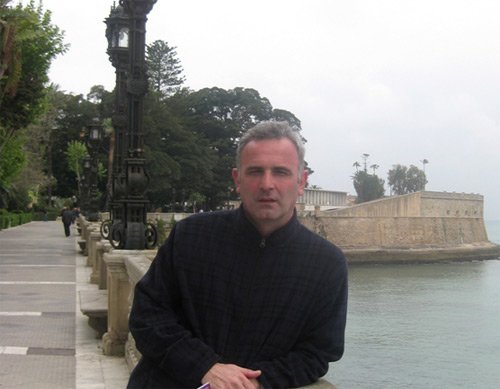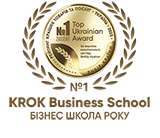Valerian Makatsaria: Do you consider yourself as a professional? What will be your position on the results of the reboot of professional elites?
Today, our civilization is on the verge of an institutional revolution - a systemic replacement of the relationship management model.
Somehow, 10 years ago, I calmly swam along a coral reef in a mask and enjoyed watching the colorful sea creatures. Suddenly, disturbing the calm, abruptly, overtaking me, swam several small schooling fishes of an unremarkable appearance. Behind them are some more of the same groups. I involuntarily turned my head and looked in almost the opposite direction - to the place from where these flocks jumped out ... and I was scared. Three sharks were swimming there. Fortunately, I was not interested for them. They swam three meters away from me. A little later, on the shore, I learned that they were coral sharks and they do not attack people.
Small fish flocks are weak signals. When they grow, it makes sense to wait for a big event. Such an event brings with it its own rules, under which everyone has to adapt.
Today, almost every start-up competition presents the theme of the professional community - lawyers, scientists, programmers, doctors, politicians, designers, managers, thinkers, philosophers, artists, and other people of mental labor. Each of these start-ups is trying to make a creative contribution to society, to make this or that community of professionals more accessible and harmonious. While these startups remind me of flocks of fish. But ...
I will take the liberty to declare that today our civilization is on the verge of an institutional revolution - a systematic replacement of the relationship management model.
The laurels for this coup will go to a start-up team with high ambitions, which will set a goal - the creation of a search engine-regulator of global professionalism.
Civilization is the largest unit of social organization. The growth of information mobility and energy availability is the root cause of the changes that lead to a different arrangement of people's activities and life. As a result, the life span of people on the planet is growing, and the existing order of interaction between people, organizations and states is being improved. The rules and mechanisms by which these relationships are regulated are called institutions.
Globalization as a global process of integration and unification manifests itself in political, economic and other diverse scientific and cultural aspects.
There are a lot of examples of how the growth of information mobility and energy supply initiated the change of the industrial era to globalization, and then affected the changes in our livelihoods. These are Skype IT telephony instead of international telephone offices at post offices, Wikipedia instead of Britannica and Great Soviet Encyclopedia encyclopedias, digital photography and LCD screens instead of films and albums for paper photos, etc. Today, these changes are being introduced by JPS and 3D technologies, etc. Tomorrow - the hydrogen engine, and after it - the quantum computer.
These changes are hard to miss. But the unification of the world order - a set of legal conventions in politics and the protection of human rights, international financial reporting standards, WTO trade rules, Bologna agreements in education, environmental protocols, etc. - they were introduced not at the same time, but gradually, therefore they were perceived rather as an evolution.
One of the structural manifestations of this process has become the tendency of dividing the global economy into such categories as labor and product. Overspecialization is a consequence of the growth of megacities and high competition among professionals, races and peoples with diverse abilities.
Professionalism is a new unit of measurement and a key criterion governing relationships in a global society. A professional, on the other hand, is a person, a person who influences society, the degree of which will be measured by a new search engine regulator.
Who will propose a new model, i.e. A simplified algorithm that incorporates a way to identify and rank professionals from different areas of the global industry of knowledge and creativity?
In our case, in the language of management, a method of identification and ranking is a decision-making mechanism. A dynamic mechanism that allows you to watch the adoption of a huge number of decisions at any second.
Strategists, thinkers of management from different megacities, are forced to admit that good strategies in modern management are not born outbursts of genius of individual talented people, but the ability to organize the best way to make decisions for a given situation. So the optimal strategy is the fruit of the right way of making collective decisions.
In the case of a search engine-regulator, this decision-making method will be constantly improved. This means that the query and the ranking result will be increasingly relevant to each other. Accordingly, we in our life and work will make decisions for drivers.
Returning to the flocks of fish, I note that they are of three kinds.
Three areas of work are conducted today by different groups of start-up developers (flocks):
- Existing global virtual professional communities social networks, for example, LinkedIn, as a rule, do not contain person identification and ranking algorithms for professionals. And the search is carried out only within the community, i.e. among the registered participants. But there is a built-in mechanism for the voluntary evaluation of the person's professionalism on the part of the social network participants.
- Community one professional group. To interact with him - you need to register. However, within such groups (forums), as a rule, an algorithm is established that assigns an intragroup statute, which depends on various factors - the number of publications, messages, likes from supporters, term of membership, etc.
- Integrated collection of information about a person with the help of several well-known search engines. Such developments are able to collect complete information about the person. Assess the level of his professional Internet presence. True, the qualitative issue - global professional utility, while they bypass it. The ranking algorithm is generally not applicable.
In my opinion, these three approaches have already accumulated in themselves the necessary search and ranking algorithms, as well as scripts that allow the above designated task of creating a search engine-regulator of global professionalism to storm directly.
I wish you success. I am open to cooperation on this topic.
Literature
- Gary Hamel, Leader Manifesto, Eksmo, 2013
- Richard Florida, Big Reload, Classic 21, 2012
- Ruchir Sharma, Breakthrough Economies, Eksmo, 2013
- Nial Ferguson, "Civilization - how does the West differ ...", "AST", 2014
- Alexander Auzan, "How do institutions define our lives?", "Man, Ivanov and Ferber", 2014
- Matio Kaku, "Physics of the Future", "Alpina non-fiction", 2012
- Gabe Zikerman, Jocelyn Linder, Gamification in Business, Mann, Ivanov and Ferber, 2014























